Nikki's simulation on the Great Depression a few weeks back helped me appreciate all the more my Aunt Bea's 100 years of living, celebrated this past weekend by 300 friends and family members from all over the US. She was just turning 20 when the Great Depression hit. Her life story via video gave a glimpse of the roaring 20's followed by the crash of the stock market. I truly understand why she has worked so hard and lived so frugally with the constant goal of self improvement and self sufficiency. She succeeded because of a vision she had for the future. She actually had the goal of living for 100 years - in good health - just like her mother did! A book I read on the plane on my way home from the celebration, Tapping Student Effort by Steve Barkley, stresses the importance of helping our students establish their own vision of success. He talks especially about our intentional non-learners. Only by helping them find their strengths or abilities and showing them how just a little effort can multiply that ability can we hope to motivate them.
A book I read on the plane on my way home from the celebration, Tapping Student Effort by Steve Barkley, stresses the importance of helping our students establish their own vision of success. He talks especially about our intentional non-learners. Only by helping them find their strengths or abilities and showing them how just a little effort can multiply that ability can we hope to motivate them.  Janet points out our many students who have found their strengths and understand how effort multiplies their abilities. How do we help all of our students find their strengths? By getting to know them and helping them visualize the possibitilies instead of focusing on their weaknesses - by not giving up on them no matter what.
Janet points out our many students who have found their strengths and understand how effort multiplies their abilities. How do we help all of our students find their strengths? By getting to know them and helping them visualize the possibitilies instead of focusing on their weaknesses - by not giving up on them no matter what. Here one of Cynthia's freshman envisions what she will look like at graduation in her cap and gown with diploma in hand 4 years from now. All Cynthia's students were photographed so that they could imagine the possibilities. They carry their planners to every class in order to take the small steps in the right direction. The academic word for the week is appropriately ACHIEVE. Help them achieve by frequently encouraging the use of planners in your classes as a way to set goals and check off those small steps to future success.
Here one of Cynthia's freshman envisions what she will look like at graduation in her cap and gown with diploma in hand 4 years from now. All Cynthia's students were photographed so that they could imagine the possibilities. They carry their planners to every class in order to take the small steps in the right direction. The academic word for the week is appropriately ACHIEVE. Help them achieve by frequently encouraging the use of planners in your classes as a way to set goals and check off those small steps to future success.
Note below (and in past entries) some West teachers who make an effort to know their students and help them visualize the possibilities. Susi models good health and personal fitness as well as a positive outlook for her students and West faculty. You would never know she has had her own personal obstacles to overcome - think pink.
Susi models good health and personal fitness as well as a positive outlook for her students and West faculty. You would never know she has had her own personal obstacles to overcome - think pink.  t
t Bobby and Julie Ann work diligently toward grading practices that give students immediate feedback on progress toward mastery of essential learning skills, using the results of those assessments to direct their next steps in lesson preparation. They exemplify teamwork and creative thinking in this effort which they are willing to share with West staff.
Bobby and Julie Ann work diligently toward grading practices that give students immediate feedback on progress toward mastery of essential learning skills, using the results of those assessments to direct their next steps in lesson preparation. They exemplify teamwork and creative thinking in this effort which they are willing to share with West staff. Pat helps our students in math lab and Algebra I visualize how we use math every day.
Pat helps our students in math lab and Algebra I visualize how we use math every day. Karen fosters higher level thinking skills through modeling literacy strategies for students doing research and shares her classroom via video with the faculty. Thanks, Karen.
Karen fosters higher level thinking skills through modeling literacy strategies for students doing research and shares her classroom via video with the faculty. Thanks, Karen.  Thanks to our media specialists, Liz, Candy and Talana for tech support and to Josh for making popcorn and Krista for providing helpers and treats. I was sorry to have to miss the show. Click here for a link to the bookmark you received - a pdf file from a website that also provides a wealth of other graphic organizers. Mary has used these same literacy strategies in a step-by-step version with her ELL's. See Say Something from Anita Archer.
Thanks to our media specialists, Liz, Candy and Talana for tech support and to Josh for making popcorn and Krista for providing helpers and treats. I was sorry to have to miss the show. Click here for a link to the bookmark you received - a pdf file from a website that also provides a wealth of other graphic organizers. Mary has used these same literacy strategies in a step-by-step version with her ELL's. See Say Something from Anita Archer.
 Papo strengthens connections between home and school adding support for ELL students.
Papo strengthens connections between home and school adding support for ELL students. Lisa holds students accountable for attendance, pointing to the correlation between regular attendance and success in school.
Lisa holds students accountable for attendance, pointing to the correlation between regular attendance and success in school. Nancy converses with her students in German to introduce and practice new vocabulary. Here she models guided reading, instructing her students in small groups through which differentiated learning opportunities are provided daily.
Nancy converses with her students in German to introduce and practice new vocabulary. Here she models guided reading, instructing her students in small groups through which differentiated learning opportunities are provided daily.  Other students practice vocabulary of their choice with Quizlet, a flashcard website which allows classrooms to set up their own personalized sets for familiarization, learning, testing and proficiency.
Other students practice vocabulary of their choice with Quizlet, a flashcard website which allows classrooms to set up their own personalized sets for familiarization, learning, testing and proficiency.

Steve has students preassess their understanding of the history of life on earth by placing major events along a timeline. Then he presents fossil evidence which helps them adjust their thinking. He motivates students to read more about these ideas with a display of books from his own personal library with names such as Snowball Earth and The Day the Earth Almost Died. He shares his ideas with students but reminds them that there are no definitive answers to this age old question of how life started on earth. Perhaps they will be the ones to discover the answers. Oh, the possibilities.
He shares his ideas with students but reminds them that there are no definitive answers to this age old question of how life started on earth. Perhaps they will be the ones to discover the answers. Oh, the possibilities.  Matt makes his expectations for project-based learning clear through checklists and rubrics. He uses a 5-point grading scale. Ask him about it.
Matt makes his expectations for project-based learning clear through checklists and rubrics. He uses a 5-point grading scale. Ask him about it.
At the May 4 faculty meeting, you marked an observation form while observing Karen use four components of our district literacy model - modeled, shared, guided, and intentional independent reading. My focus for May will be to help you assess your use of these reading components in your classroom. Send me an email. I will get you on my calendar. It won't be quite an fun as attending prom with Jeanette, Jolie, Bryan and Tami, but it may be almost as enlightening. You will discover new strengths and get a better vision of future possibilities. I am only an email away.
with Jeanette, Jolie, Bryan and Tami, but it may be almost as enlightening. You will discover new strengths and get a better vision of future possibilities. I am only an email away.
 A book I read on the plane on my way home from the celebration, Tapping Student Effort by Steve Barkley, stresses the importance of helping our students establish their own vision of success. He talks especially about our intentional non-learners. Only by helping them find their strengths or abilities and showing them how just a little effort can multiply that ability can we hope to motivate them.
A book I read on the plane on my way home from the celebration, Tapping Student Effort by Steve Barkley, stresses the importance of helping our students establish their own vision of success. He talks especially about our intentional non-learners. Only by helping them find their strengths or abilities and showing them how just a little effort can multiply that ability can we hope to motivate them.  Janet points out our many students who have found their strengths and understand how effort multiplies their abilities. How do we help all of our students find their strengths? By getting to know them and helping them visualize the possibitilies instead of focusing on their weaknesses - by not giving up on them no matter what.
Janet points out our many students who have found their strengths and understand how effort multiplies their abilities. How do we help all of our students find their strengths? By getting to know them and helping them visualize the possibitilies instead of focusing on their weaknesses - by not giving up on them no matter what. Here one of Cynthia's freshman envisions what she will look like at graduation in her cap and gown with diploma in hand 4 years from now. All Cynthia's students were photographed so that they could imagine the possibilities. They carry their planners to every class in order to take the small steps in the right direction. The academic word for the week is appropriately ACHIEVE. Help them achieve by frequently encouraging the use of planners in your classes as a way to set goals and check off those small steps to future success.
Here one of Cynthia's freshman envisions what she will look like at graduation in her cap and gown with diploma in hand 4 years from now. All Cynthia's students were photographed so that they could imagine the possibilities. They carry their planners to every class in order to take the small steps in the right direction. The academic word for the week is appropriately ACHIEVE. Help them achieve by frequently encouraging the use of planners in your classes as a way to set goals and check off those small steps to future success.Note below (and in past entries) some West teachers who make an effort to know their students and help them visualize the possibilities.
 Susi models good health and personal fitness as well as a positive outlook for her students and West faculty. You would never know she has had her own personal obstacles to overcome - think pink.
Susi models good health and personal fitness as well as a positive outlook for her students and West faculty. You would never know she has had her own personal obstacles to overcome - think pink.  t
t Bobby and Julie Ann work diligently toward grading practices that give students immediate feedback on progress toward mastery of essential learning skills, using the results of those assessments to direct their next steps in lesson preparation. They exemplify teamwork and creative thinking in this effort which they are willing to share with West staff.
Bobby and Julie Ann work diligently toward grading practices that give students immediate feedback on progress toward mastery of essential learning skills, using the results of those assessments to direct their next steps in lesson preparation. They exemplify teamwork and creative thinking in this effort which they are willing to share with West staff. Pat helps our students in math lab and Algebra I visualize how we use math every day.
Pat helps our students in math lab and Algebra I visualize how we use math every day. Karen fosters higher level thinking skills through modeling literacy strategies for students doing research and shares her classroom via video with the faculty. Thanks, Karen.
Karen fosters higher level thinking skills through modeling literacy strategies for students doing research and shares her classroom via video with the faculty. Thanks, Karen.  Thanks to our media specialists, Liz, Candy and Talana for tech support and to Josh for making popcorn and Krista for providing helpers and treats. I was sorry to have to miss the show. Click here for a link to the bookmark you received - a pdf file from a website that also provides a wealth of other graphic organizers. Mary has used these same literacy strategies in a step-by-step version with her ELL's. See Say Something from Anita Archer.
Thanks to our media specialists, Liz, Candy and Talana for tech support and to Josh for making popcorn and Krista for providing helpers and treats. I was sorry to have to miss the show. Click here for a link to the bookmark you received - a pdf file from a website that also provides a wealth of other graphic organizers. Mary has used these same literacy strategies in a step-by-step version with her ELL's. See Say Something from Anita Archer.
 Papo strengthens connections between home and school adding support for ELL students.
Papo strengthens connections between home and school adding support for ELL students. Lisa holds students accountable for attendance, pointing to the correlation between regular attendance and success in school.
Lisa holds students accountable for attendance, pointing to the correlation between regular attendance and success in school. Nancy converses with her students in German to introduce and practice new vocabulary. Here she models guided reading, instructing her students in small groups through which differentiated learning opportunities are provided daily.
Nancy converses with her students in German to introduce and practice new vocabulary. Here she models guided reading, instructing her students in small groups through which differentiated learning opportunities are provided daily.  Other students practice vocabulary of their choice with Quizlet, a flashcard website which allows classrooms to set up their own personalized sets for familiarization, learning, testing and proficiency.
Other students practice vocabulary of their choice with Quizlet, a flashcard website which allows classrooms to set up their own personalized sets for familiarization, learning, testing and proficiency.
Steve has students preassess their understanding of the history of life on earth by placing major events along a timeline. Then he presents fossil evidence which helps them adjust their thinking. He motivates students to read more about these ideas with a display of books from his own personal library with names such as Snowball Earth and The Day the Earth Almost Died.
 He shares his ideas with students but reminds them that there are no definitive answers to this age old question of how life started on earth. Perhaps they will be the ones to discover the answers. Oh, the possibilities.
He shares his ideas with students but reminds them that there are no definitive answers to this age old question of how life started on earth. Perhaps they will be the ones to discover the answers. Oh, the possibilities.  Matt makes his expectations for project-based learning clear through checklists and rubrics. He uses a 5-point grading scale. Ask him about it.
Matt makes his expectations for project-based learning clear through checklists and rubrics. He uses a 5-point grading scale. Ask him about it.At the May 4 faculty meeting, you marked an observation form while observing Karen use four components of our district literacy model - modeled, shared, guided, and intentional independent reading. My focus for May will be to help you assess your use of these reading components in your classroom. Send me an email. I will get you on my calendar. It won't be quite an fun as attending prom
 with Jeanette, Jolie, Bryan and Tami, but it may be almost as enlightening. You will discover new strengths and get a better vision of future possibilities. I am only an email away.
with Jeanette, Jolie, Bryan and Tami, but it may be almost as enlightening. You will discover new strengths and get a better vision of future possibilities. I am only an email away.













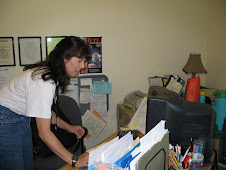
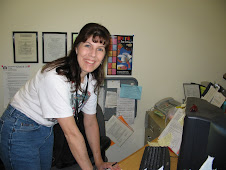


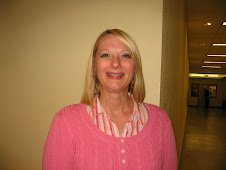




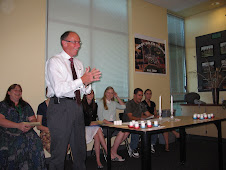
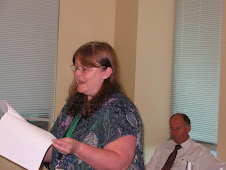
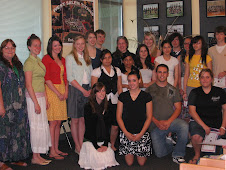
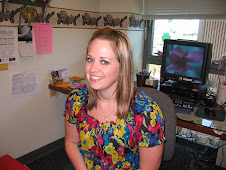

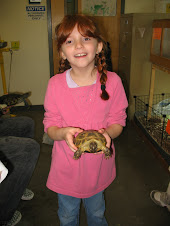

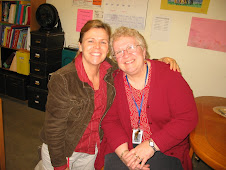




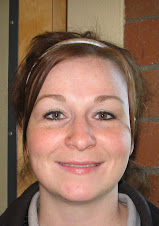








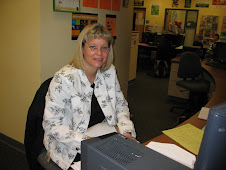



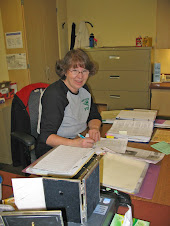



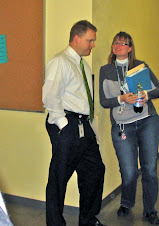

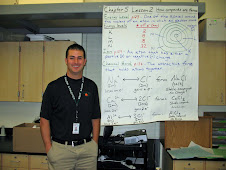

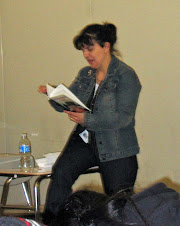
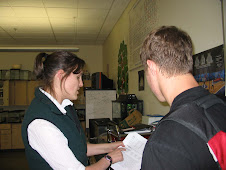


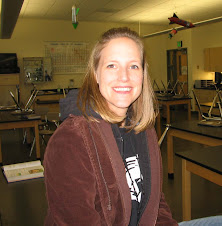
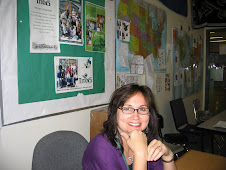
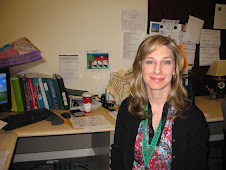
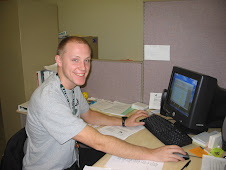
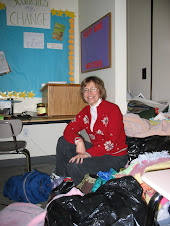


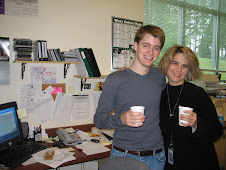

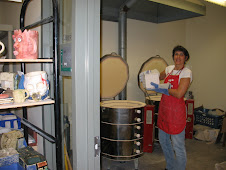
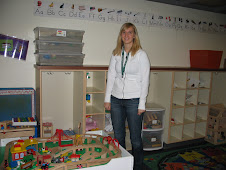
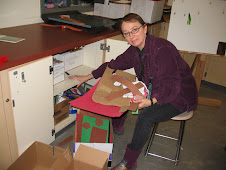
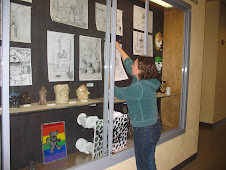
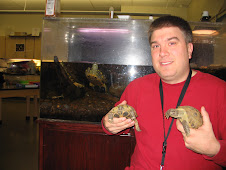
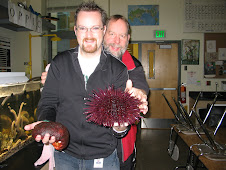
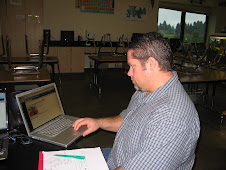
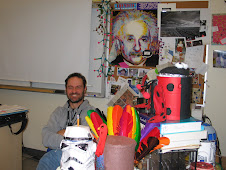
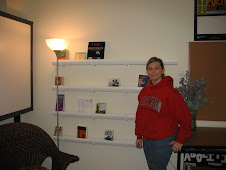
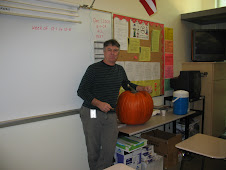
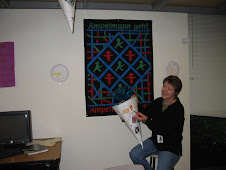
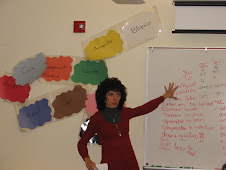
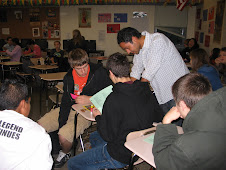
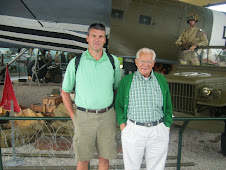
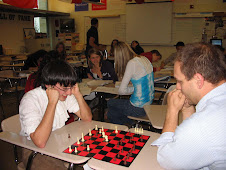

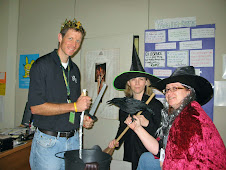

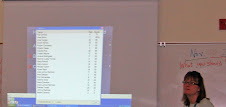
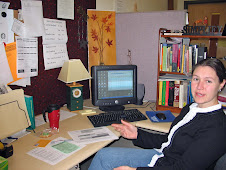



No comments:
Post a Comment